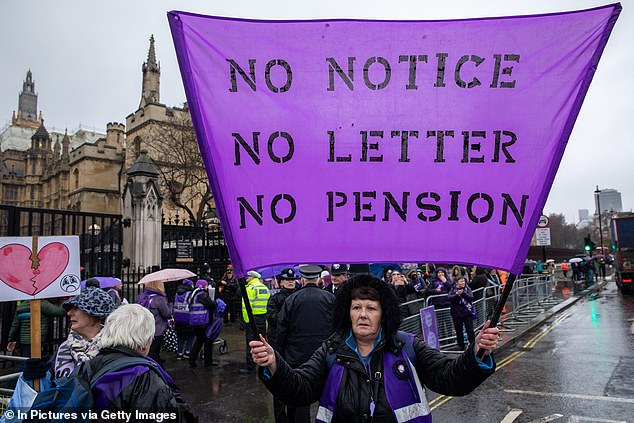<!–
<!–
<!– <!–
<!–
<!–
<!–
Of course I think we should all take responsibility for our financial future. I am a money editor, after all.
Still, my blood boils when people use this argument to wash their hands of Waspi women.
It’s easy to look at this generation, born in the 1950s, through today’s lens.

Stop judging: it’s easy to look at the Waspi generation, born in the ’50s, through today’s lens
Nowadays, financial independence is much easier to achieve and finding out your state pension is seen as a responsibility we all share.
But the working lives of Waspi women exist in two very different worlds.
While today they are admonished for not being financially independent, it wasn’t long ago that they were reprimanded for daring to be so.
As Waspi women began their careers, women were encouraged to rely on men for their finances while supporting their husbands, children, and elderly parents.
Remember, it wasn’t until 1975 that a law was passed allowing women to open a bank account in their own name.
When some Waspi women were 24, women still could not apply for a loan or mortgage without the signature of their husband or father.
As recently as 1971, just over half of women were working. Today it is closer to three-quarters. Many were encouraged or forced by their employers to give up work when they married.
Yes, millions worked in tough jobs for decades while balancing other responsibilities. But even then they were treated as second class to men.
Today, women are paid an average of £92.30 for every £100 paid to their male counterparts.
But among the over-60s, women receive just £85.80 for every £100 men earn.
So it is a bit of an exaggeration to now turn around and say that Waspi women should have put more aside and taken greater responsibility for knowing their state pension age. Many did save and were aware of the pension changes.
But the Ombudsman and the National Audit Office have been very clear in saying that communication about the changes to state pensions was woefully lacking.
Jeremy Hunt has so far refused to commit to any compensation, arguing it should ‘come from other taxpayers’.
Unlike successive chancellors and governments before him, he cannot sweep the matter under the carpet.
Yes, many women affected by the changes to the state pension age have robust finances and do not need support.
But when you read the hundreds of emails Money Mail has received from Waspi women, it becomes clear that there are many more who deserve help.
Any money given to these women would be put into circulation very quickly and spent on essential bills, food and healthcare, causing the economy to grow, not shrink.
It’s clear what needs to happen right away: an apology. Money Mail reader Carole echoed so many letters to our office when she wrote: ‘You can’t retroactively date equality. Men have had their entire lives to prepare for retirement. How were we going to catch up and plan for the future?’


